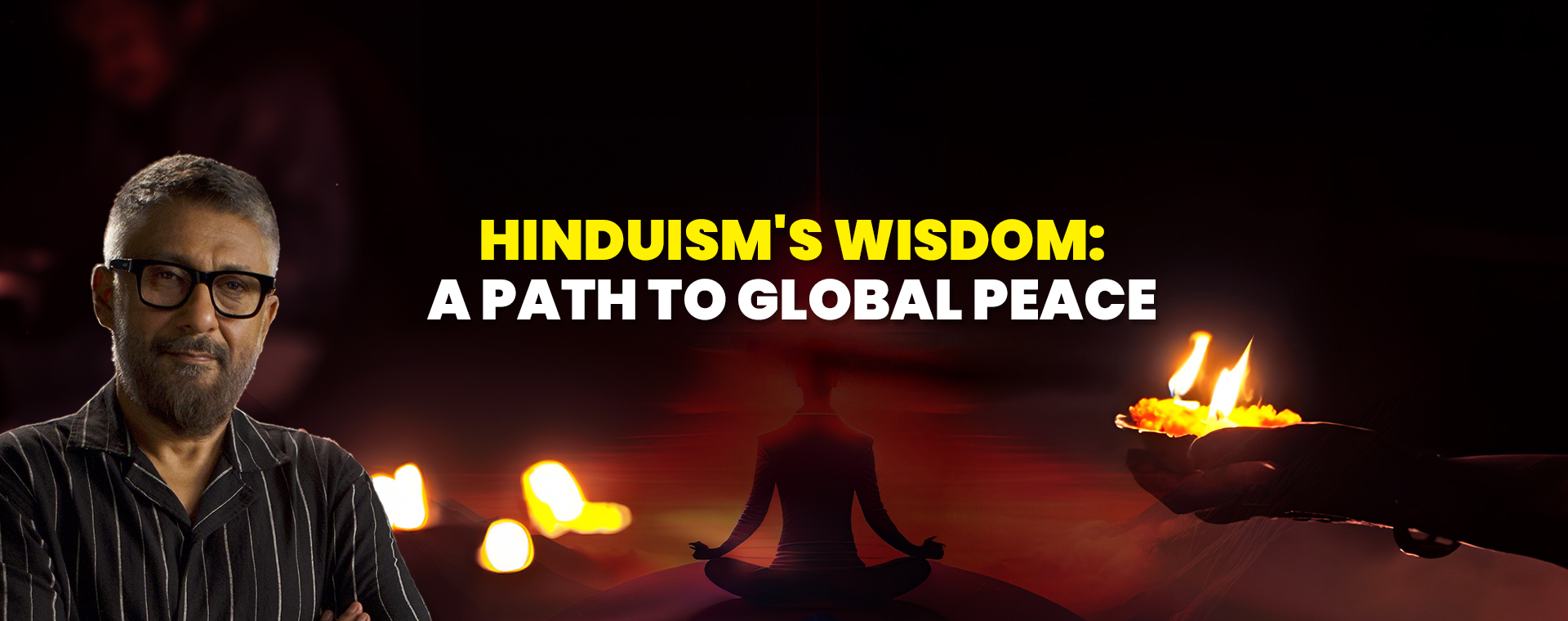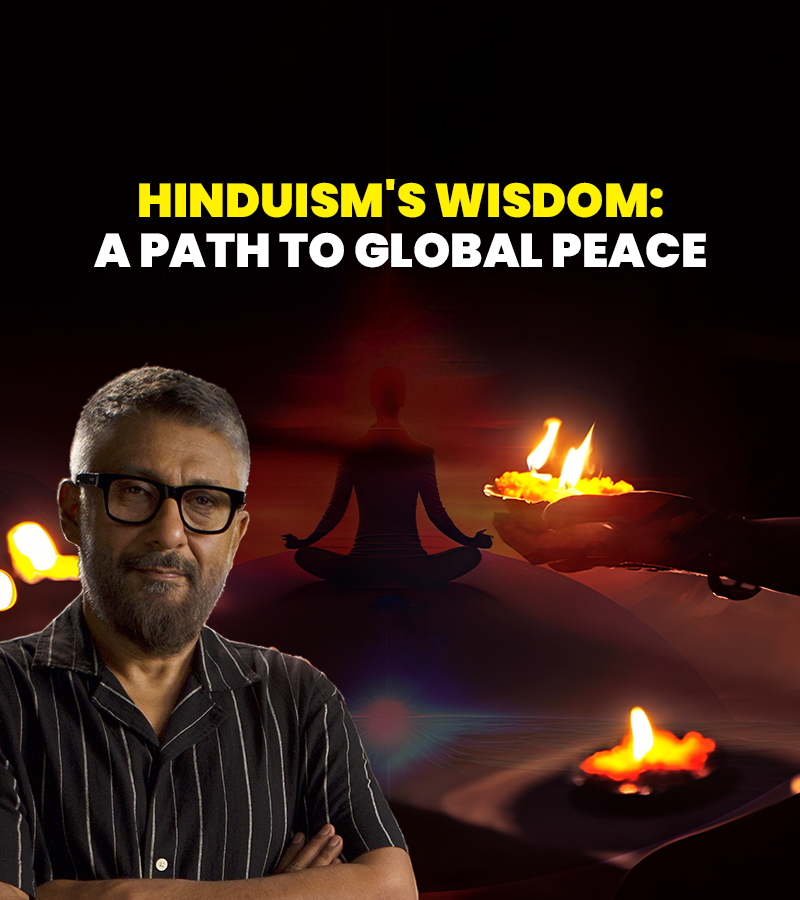

How Can Ancient Hindu Philosophy Help Achieve Global Peace?
Beyond Rituals: Unveiling Hinduism’s Profound Contribution to Oneness.
Vivek Ranjan Agnihotri, a bold filmmaker known for challenging norms and sparking profound discussions, invites us to delve into the essence of Hinduism. We move beyond the customary rituals and deities to unearth a profound truth: Hinduism’s fundamental philosophy is the key to unlocking the very concept of ‘humanity’.
The Elusive Quest for Oneness: A Global Yearning
Across the globe, a yearning for peace and a sense of shared humanity echo in our hearts. We seek a world where differences fade, and a sense of belonging transcends borders and beliefs. Yet, achieving this seemingly simple goal remains a complex challenge. Agnihotri offers a bold yet compelling proposition: the seeds of this concept lie within the ancient wisdom of the Hindu civilization.
The Enigma of Shiva’s Third Eye: A Symbol of Wholeness
Hinduism presents a unique vision of the divine through the enigmatic figure of Shiva. His third eye is a symbolic representation of a consciousness that transcends the limitations of the human brain. The left brain, associated with logic and analysis, often resonates with the Western approach to the world. The right brain, governing creativity and intuition, connects with the Eastern perspective. With his third eye, Shiva embodies the unification of these seemingly disparate aspects.
Oneness: A Cornerstone of Hindu Philosophy
This concept of oneness is more than just symbolic. It forms the very foundation of Hindu philosophy, fostering a sense of universal connection. From the ancient principle of Vasudhaiva Kutumbakam (the world is one family) to Sarva Dharma Sambhava (equal respect for all faiths), Hinduism embraces all, recognizing the inherent divinity within all creation. This inclusivity starkly contrasts the often-divisive nature of other religions, making everyone feel accepted and part of a larger whole.
The Right Brain of the World: India’s Emotional Tapestry
Agnihotri draws a fascinating parallel between the brain’s hemispheres and nations’ cultural identities. America, he argues, exemplifies the left-brain approach, prioritizing logic, data, and a more analytical worldview. Conversely, India is seen as the right brain of the world, where emotions, intuition, artistic expression, and a deep connection to the spiritual realm hold immense value. This inherent emphasis on the intangible, the interconnectedness of all things, and the power of emotions allows India to embrace such remarkable diversity within its borders.
Beyond Duality: The Hindu Path to Global Harmony
According to Agnihotri, the world has often been caught in a tug-of-war between the analytical and the emotional. But the solution, he posits, lies not in dominance by one side but in a harmonious union. The third eye of Shiva represents the merging of these seemingly disparate forces. In embracing this holistic worldview, nurtured for millennia within Hindu philosophy, true peace and a sense of global community can be achieved.
A Call for Recognition: The World Needs to Learn
The message is clear: if world peace is the ultimate goal, then the wisdom of Hinduism deserves a central seat at the table. Agnihotri doesn’t advocate blind acceptance but instead encourages critically examining these ancient philosophies that offer potential solutions to the most pressing contemporary challenges. This is not just a suggestion but a call for recognition of the urgency and importance of this message.
Unearthing the Potential Within: A Call to Action
This exploration is not merely an intellectual exercise. It’s a call to recognize the profound potential that lies dormant within the DNA of Hindu civilization. By embracing the spirit of oneness by nurturing the right brain alongside the left, India can reclaim its role as a guiding light for the world, leading the way towards a future built on empathy, understanding, and a deep sense of universal connection.
A Legacy of Wisdom: A Spark for the Future
The world is a vibrant tapestry woven from diverse cultures and traditions. While acknowledging this rich heritage, Agnihotri compels us to recognize the singular contribution of Hinduism to the very idea of humanity. In rediscovering this ancient wisdom, in opening our collective third eye, we can truly forge a path towards a more peaceful and harmonious future. This exploration of Hindu philosophy is not just about understanding the past; it’s about harnessing its profound potential to illuminate the path towards a brighter future for all humanity.






